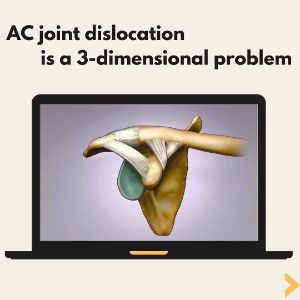If you are experiencing prolonged and increasing shoulder pain, how do you know if you are suffering from joint separation? Signs and symptoms of shoulder separation include pain upon the moment of injury, limited movement in the shoulder area due to pain, swelling and bruising. Another sign could be possible tenderness over the AC (acromioclavicular) joint on top of the shoulder, or perhaps deformity.
What to Expect if You Have an AC Separation
The period of disability and discomfort can range from a few days to several weeks, depending on the severity of the separation. Disruption of the AC joint results in pain and instability in the entire shoulder and arm. Any attempted overhead movements or trying to sleep on the affected side creates increased pain that may be unbearable.
The most common cause is due to direct trauma to the shoulder. The injury may stretch or tear the ligaments that hold your collarbone to your shoulder blade. In a mild separated shoulder, the ligaments might just be stretched. In severe injuries, ligaments might be torn.
For most, a separated shoulder does not usually require surgery. The more traditional therapies of rest, ice and over-the-counter anti-inflammatories are often enough to alleviate discomfort. Most people recover within a few weeks after having a separated shoulder.
Risk factors of AC Separation
Participating in contact sports, such as football and hockey, or in sports that can involve falls such as downhill skiing, gymnastics and volleyball may put you at increased risk of a separated shoulder.
Increased shoulder pain is possible if you have a severe separation that involves significant displacement or fracture of the collarbone. Other possibilities can be the development of arthritis in your shoulder. If other structures around your shoulder, including the rotator cuff, are damaged, you may be looking at a surgical solution.
Contact your shoulder expert Dr. Steven Struhl for a consultation today if you are suffering from shoulder pain and feel you may have AC Separation.
Posted on behalf of Steven Struhl MD





